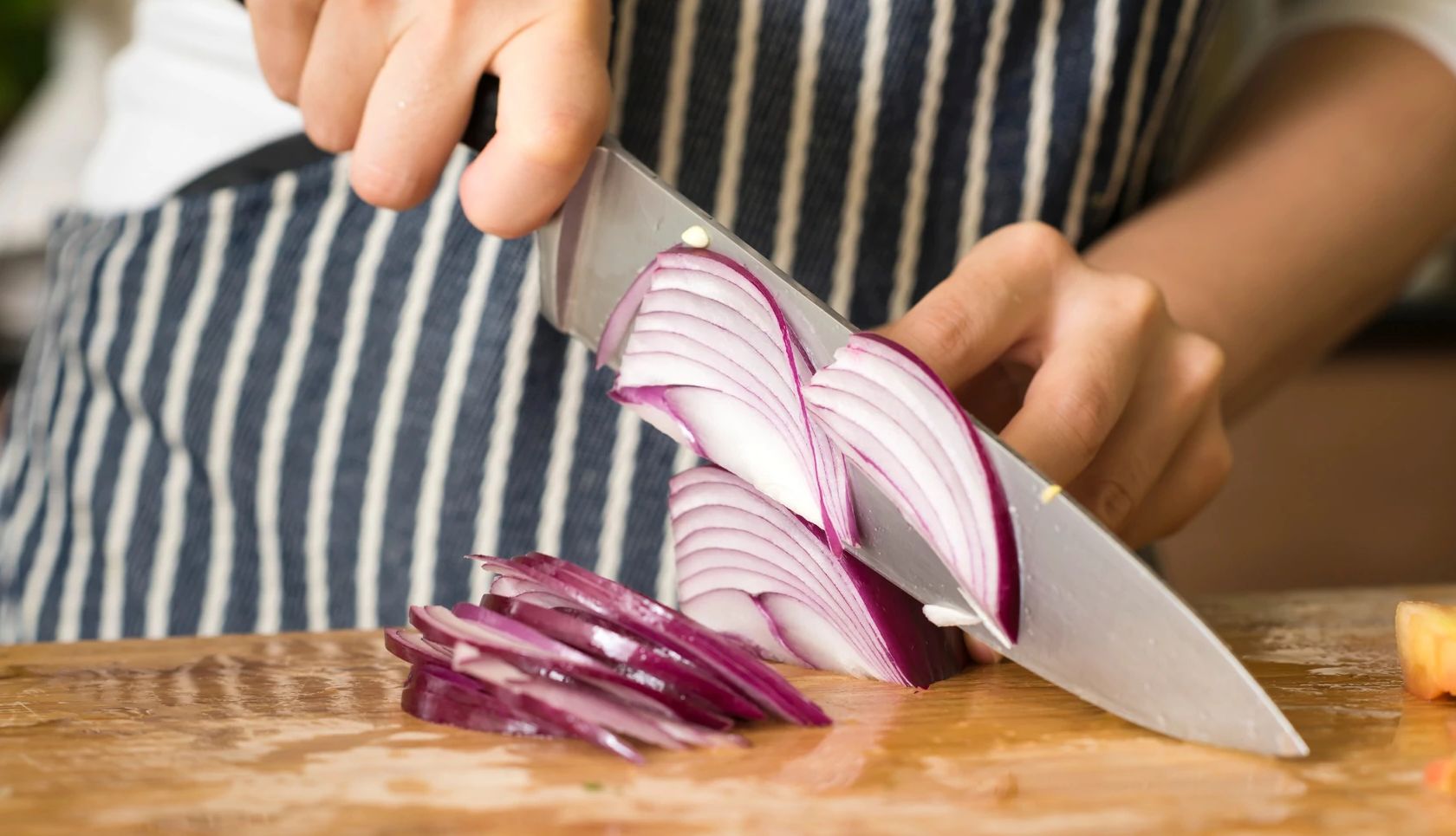
- Select a language for the TTS:
- UK English Female
- UK English Male
- US English Female
- US English Male
- Australian Female
- Australian Male
- Language selected: (auto detect) - EN
Play all audios:
We’ve all been there. You’re about to try the recipe you’ve been craving for ages when you see that one line: “Start by chopping the onions.” Sure, they’re a great flavor enhancer, but
onions can also be a pain in the kitchen. “Onions have a defense mechanism against a lot of different pests and potential herbivores,” explains Brian Quoc Le, a food scientist and food
industry consultant. The plant cells, he says, are separated into different compartments. One contains an enzyme, while the other contains a specialized amino acid. When the cells are
ruptured by a knife, replicating an insect’s bite, they mix and create a sulfurous compound that reaches your eyes and makes you tear up. While the compound isn’t dangerous, the tears can
impair your vision at a critical time, while you’re handling knives and other sharp kitchen tools, says Natasha Herz, M.D., spokesperson for the American Academy of Ophthalmology and an
ophthalmologist at Family Care and Surgery in Rockville, MD. This doesn’t mean you should stop chopping onions altogether. We asked experts for their favorite science-backed tips to keep the
tears from flowing: 1. OPT FOR ONION GOGGLES You’ll look goofy, but food scientists and chefs alike say they might be your best option. Onion goggles are designed to fully isolate your eyes
from the irritating compounds released by the chopping, therefore preventing the reaction that causes the tears to flow. “Once you get past the part where you look a little funny, they
really work,” says Lisa McManus, executive editor at America’s Test Kitchen Reviews. Swim goggles should work as well. Regular glasses and contacts can also help, but they’ll still leave
parts of your eyes unshielded. Who cares about what they look like in the kitchen anyway? 2. CREATE SOME AIR MOVEMENT Creating some airflow can help, says Abbey Thiel, a food scientist and
YouTuber. Opening the window to create a draft can help — even though you can’t predict the direction in which the wind is going to blow. Turning on a fan to try and keep the compounds away
from your eyes could keep the tears at bay, although it may not get rid of all the irritating compounds. Having a fan in the kitchen can also be tricky. 3. COOL DOWN YOUR ONIONS Cold
temperatures generally slow down chemical reactions, including the one that happens when you cut onions. Nik Sharma, a molecular biologist turned chef and cookbook author, says he puts his
onions in the freezer for 10 to 15 minutes. “I remember hearing stories about how [young chefs in hotels and restaurants] would be kept to sit in cold rooms […] and chop the onions there. It
was the same logic,” he says. 4. USE A SHARP KNIFE There’s science behind this idea. “A blunt knife is going to tear away more of the cells of the onion and […] release more of these
volatiles,” explains Brian Chau, a food scientist. A sharp knife, conversely, means a cleaner cut and fewer ruptured cells. “I know some people are afraid of sharp knives, but a sharp knife
not only doesn’t slide around, when you put it on the food, it cuts through right where you put it and makes chopping things much easier,” McManus says. For more safety, she recommends
holding the knife over the spot where the handle meets the blade and holding the blade in a pinch grip between your thumb and forefinger. 5. DIP YOUR KNIFE IN LEMON JUICE OR VINEGAR… BUT BE
CAREFUL “Some enzymes will denature under acidic conditions. They unravel and lose their function,” Thiel says. (Denature means to change the natural qualities of something.) “This is why
you add lemon juice to guacamole to stop the browning, which is an enzymatic reaction.” Since the reaction that causes your eyes to tear up when chopping onions also involves enzymes,
dipping your knife into lemon juice, vinegar, or some sort of acid could lessen your chances of crying. However, Chau says, it won’t work all the time, and you’ll have to be extra careful
while handling your knife.







